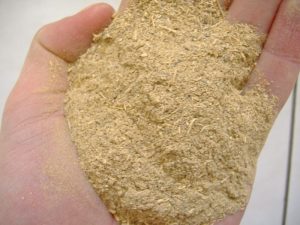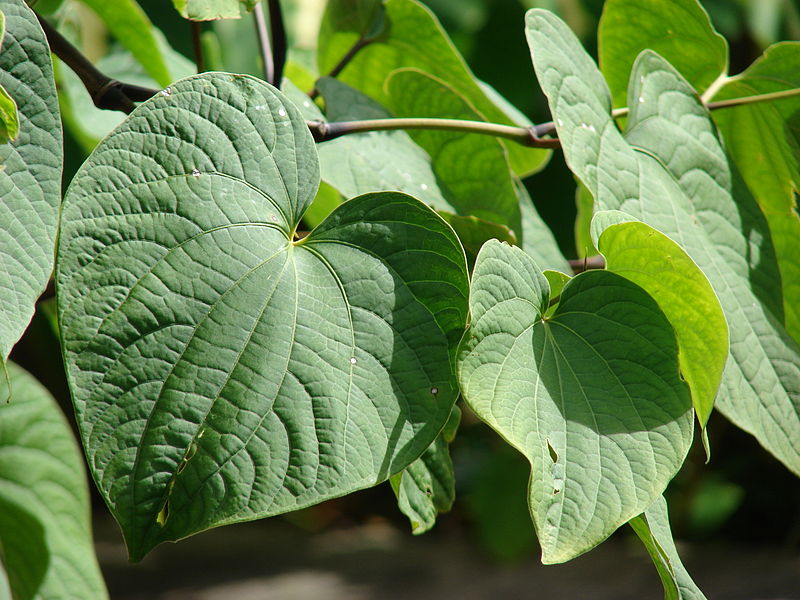Pacific Islands herb kava kava may support sleep through reducing anxiety.

Kava kava is a plant known for its sedating properties. It has been suggested to aid sleep by:
- Stimulating GABA activity. Similar to prescription sleep medications, kava acts on the receptors for GABA, a neurotransmitter that promotes relaxation.
- Decreasing noradrenaline. Kava may decrease the activity of noradrenaline, a neurotransmitter that promotes alertness.
Overview
Kava kava is harvested from the roots of the plant Piper methysticum. For hundreds of years, it has been used as both a ceremonial and recreational drink in the Pacific Islands thanks to its ability to improve mood, relaxation, and overall well-being.
Traditionally, kava kava roots are either chewed or ground up and mixed with cold water. In recent years, kava kava has been increasingly sold as a nootropic and sleep supplement. Indeed, some people consider kava kava and similar herbs such as valerian root “nature’s valium.”

How Kava Kava Might Help With Sleep
Modulation of GABA receptors
Kava kava contains active ingredients known as kavalactones that appear to interact with receptors of GABA,12 the main inhibitory neurotransmitter. GABA reduces neuron excitability, resulting in increased calmness and relaxation, and has sedating effects at higher doses. Research suggests that kava kava can increase the binding of GABA to GABA-A receptors – the same type of GABA receptors acted on by benzodiazepines – a common sleep and anti-anxiety medication. 3
Given that kava kava is thought to act on GABA receptors in a similar way as benzodiazepines and Z-drugs (Valium, Xanax, Ativan), it is not recommended to take the two simultaneously.
Decreased noradrenaline uptake
Data also suggests that kava kava can decrease the reuptake of noradrenaline (also known as norepinephrine), which acts as an alertness-promoting neurotransmitter. Although blocking the reuptake of a neurotransmitter will at first lead to increased levels, over time this overstimulation can cause a diminished receptor response, ultimately leading to a decrease in the activity of the receptors. Thus the blockade of noradrenaline’s reuptake could help promote kava’s sedating effects.
Kava Kava Benefits and Reputation for Sleep
Kava kava is used by many people for its relaxation and sleep-promoting effects. Current research findings suggest that it can aid sleep by reducing anxiety, restlessness, and related concerns, although more studies looking at the use of kava specifically in the context of sleep are needed.
Research
Animal Research
Animal research is limited, but one study found that in sleep-disturbed rats kava kava reduced sleep latency (time needed to fall asleep) and improved sleep quality.4
Human Research
Clinical studies are supportive of kava kava’s ability to reduce anxiety and improve sleep.
Kava extract WS 1490 (200 mg) appears to improve sleep in sleep-disturbed individuals
This randomized, double-blind study examined the effects and safety of a kava extract on sleep disturbances related to anxiety, tension, and restlessness. Researchers gave 61 patients kava kava extract (200 mg) or a placebo daily for 4 weeks. The results showed statistically significant improvement in the kava group on sleep, anxiety, and well-being.
- The researchers concluded that “sleep disturbances associated with non-psychotic anxiety disorders can be effectively and safely treated with kava extract.” 5
Kava kava (100 – 200 mg) decreases anxiety in perimenopausal women
A randomized study that examined perimenopausal women sought to determine the effects that kava kava has on mood. The study consisted of three groups: a control that took calcium supplements, a group that took calcium in addition to 100 mg of kava kava daily, and a third that took calcium in addition to 200 mg of kava kava daily. The results showed that those taking kava Kava had a decrease in anxiety more significant than the control group.
- The researchers concluded that “in perimenopausal women, administration of Kava-Kava induces an improvement of mood, particularly of anxiety.”6
Oral kava extract supplementation appears to reduce anxiety
This review paper analyzed clinical studies looking at kava kava in the treatment of anxiety. The results revealed that Kava kava significantly reduced anxiety across the studies when measuring it using the HRSA (Hamilton Rating Scale for Anxiety).
- The researchers concluded that “kava extract is superior to placebo as a symptomatic treatment for anxiety. Therefore, kava extract is an herbal treatment option for anxiety that is worthy of consideration.”7
Dosage for Sleep
- 100 to 300 mg of oral Kava kava extract is the most common dosage examined in studies
- The most common dosage used in supplements is 250 mg
Available Forms
- Kava kava extract. This is the most common form, usually sold in capsules standardized to contain a certain amount of kavalactones.
- Kava kava powder. This form is used to make beverages such as tea, similar to its traditional usage.
Supplements in Review Says
- Kava kava 200 – 250 mg for sleep.
Kava may help you get better sleep, especially in cases of anxiety. Although research is still in its early stages, current evidence suggests that kava kava can aid sleep in individuals prone to restlessness and anxious thoughts.
200 – 250 mg seems to be the ideal dose. Although there isn’t enough data to establish a recommended dose for sleep, 200 – 250 mg is supported by research and supplement dosages.
Leave a Reply